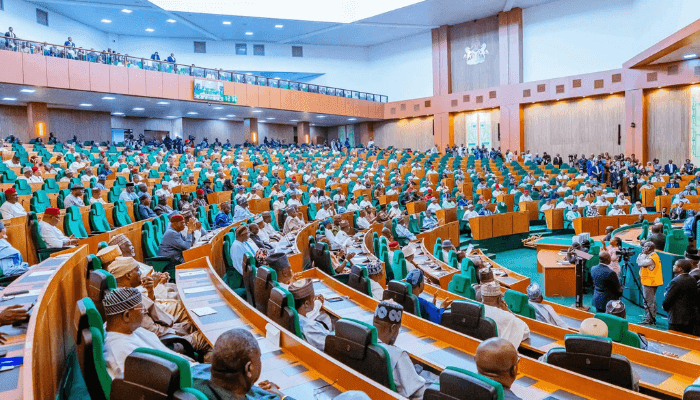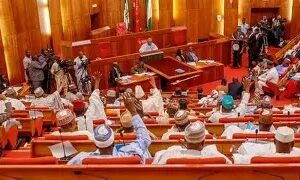The House of Representatives has issued a stern ultimatum to the Minister of Finance and the Governor of the Central Bank of Nigeria (CBN).
The lawmakers are demanding a comprehensive report on all non-Federation Account Allocation Committee (FAAC) interventions funneled to states and local government areas (LGAs) since 2023, amid growing fears that billions of naira in “off-the-books” support could be fueling mismanagement and eroding public trust.
The resolution, adopted unanimously during Tuesday’s plenary session, stems from a motion sponsored by Hon. Abdussamad Dasuki, representing Kebbe/Tambuwal Federal Constituency in Sokoto State.
Titled “Call to provide details of Federal Government Interventions to States and Local Governments Outside Monthly FAAC Allocations (2023 to Date),” the motion highlights the House’s exasperation with the opaque nature of these discretionary funds.
Lawmakers argue that without sunlight on these transactions, effective oversight becomes impossible, potentially allowing funds meant for critical infrastructure, emergency relief, and economic stabilization to vanish into bureaucratic black holes.
Under the adopted motion, Finance Minister Wale Edun and CBN Governor Olayemi Cardoso have just two weeks to deliver the bombshell report.
It must meticulously catalog every intervention, including the type (such as budget support facilities, ecological grants, or infrastructure bailouts), exact amounts disbursed, dates of payout, recipient states or LGAs, and any strings attached—like performance benchmarks or repayment clauses.
“The absence of a consolidated public record undermines transparency and accountability,” the House resolution stated, underscoring the lawmakers’ constitutional duty to scrutinize public spending.
Once submitted, the document will face intense grilling from the House Committees on Finance, Inter-Governmental Affairs, and Public Accounts.
These panels are tasked with summoning stakeholders, poring over the data for red flags, and ensuring every kobo delivers “value for money.”
They have four weeks to compile their findings and brief the full House, which could trigger probes, budget clawbacks, or even stricter fiscal laws if misuse is uncovered.
The push comes against a backdrop of Nigeria’s turbulent fiscal landscape. Since 2023, the federal government has rolled out a slew of non-FAAC lifelines to cash-strapped subnational entities reeling from subsidy removals, naira volatility, and revenue shortfalls.
These include palliative packages post-fuel subsidy axe, special grants for flood-ravaged communities, and low-interest loans for agricultural revival—interventions totaling hundreds of billions of naira, by some estimates.
Yet, unlike the predictable FAAC disbursements, which transparently divvy up oil revenues and taxes monthly, these ad-hoc aids have flown under the radar, prompting whispers of favoritism toward politically aligned governors and LGAs.
Dasuki, in moving the motion, painted a vivid picture of the stakes. “These interventions are lifelines for our people—funds for roads that connect markets, schools that shape futures, and hospitals that save lives,” he said, according to session records.
“But without accountability, they risk becoming tools for patronage rather than progress.” Colleagues from across the aisle echoed the sentiment, with Minority Leader Kingsley Chinda warning that unchecked flows could exacerbate Nigeria’s yawning inequality gap, where urban elites benefit while rural LGAs languish.
The House’s committees vow a no-holds-barred review, signaling that this is just the opening salvo in a broader war on wasteful spending.
Click to signup for FREE news updates, latest information and hottest gists everyday
Advertise on NigerianEye.com to reach thousands of our daily users









